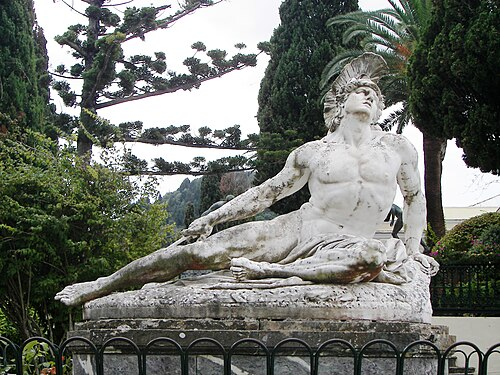In Greek mythology, Achilles, a central figure in Homer's Iliad, was known as the greatest Greek warrior. By legend, Achilles was invulnerable in all of his body except for one heel. According to myth, when his mother Thetis dipped him in the river Styx as an infant, she held him by one of his heels, leaving it untouched by the waters and thus his only vulnerable body part. To this day, Achilles' heel refers to a point of weakness that can lead to downfall.
There is also a series of numbers named for Achilles. Sequence A052486 of the On-Line Encyclopedia of Integer Sequences (OEIS) describes Achilles numbers as "powerful but imperfect: if n = Product(p_i^e_i) then all e_i > 1 (i.e., powerful), but the highest common factor of the e_i is 1, i.e., not a perfect power."
This definition uses the names of other types of numbers.
Powerful numbers: if a prime p divides n then p^2 must also divide n (also called squareful, square full, square-full or 2-powerful numbers). This is sequence A001694 in the OEIS.
Perfect numbers: Numbers k such that k is equal to the sum of the proper divisors of k. See OEIS: A000396.
Perfect power: Numbers of the form m^k where m > 0 and k >= 2. See OEIS: A001597.
The first few Achilles numbers are: 72, 108, 200, 288, 392.
This post was inspired by the comment left by a reader to a recent post about the number 108. He recognized that 108 is also an Achilles number.
Also see: A388293, Cubefull Achilles numbers.





No comments:
Post a Comment